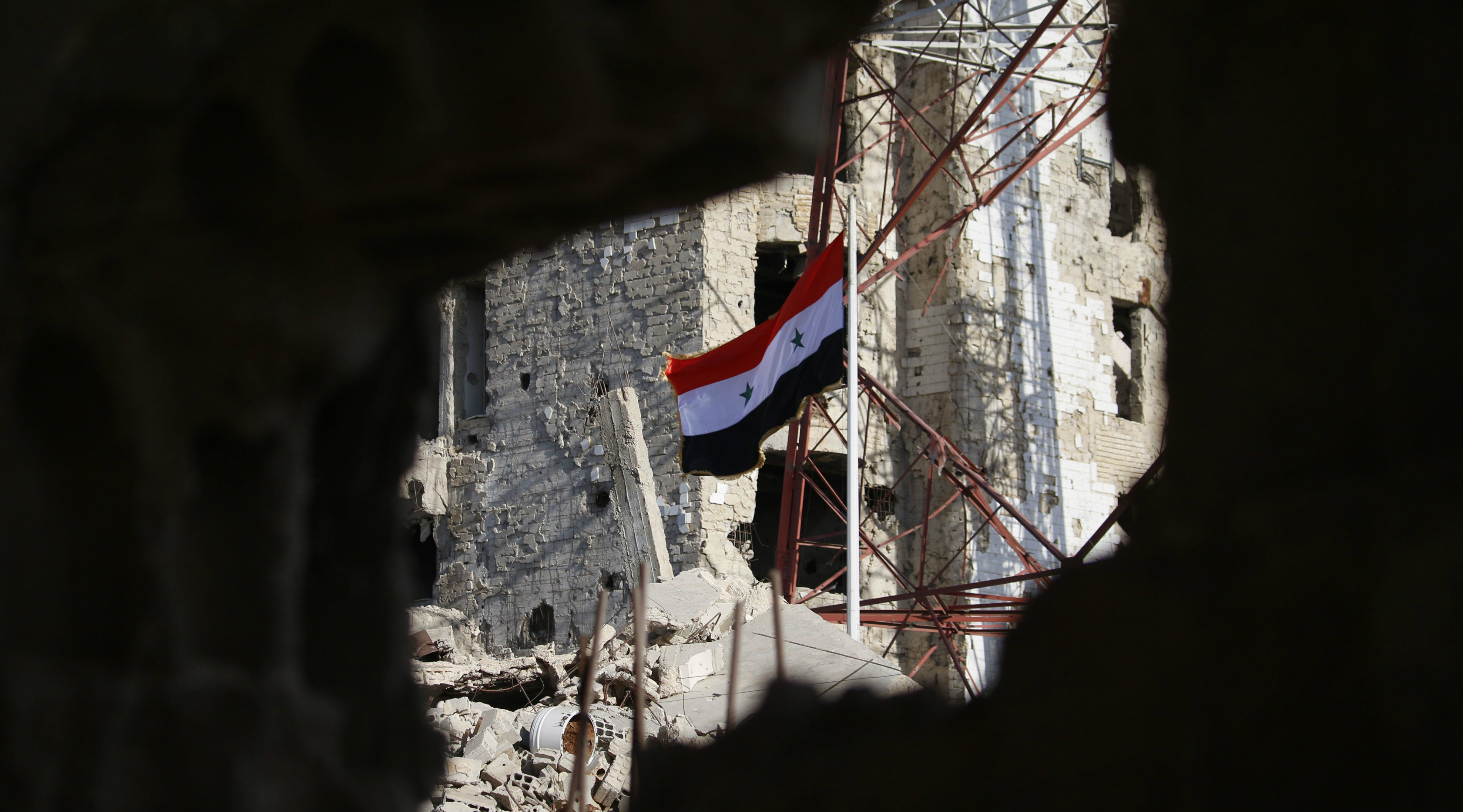Syrian government forces retake Deraa, birthplace of revolt
Rebels in the southern city have surrendered in a major victory for President Bashar al-Assad

A free daily email with the biggest news stories of the day – and the best features from TheWeek.com
You are now subscribed
Your newsletter sign-up was successful
Syrian government forces have recaptured the southern city of Deraa, the cradle of the revolution, in a major victory for President Bashar al-Assad.
Rebel forces have agreed to surrender and the national flag has been raised above the city’s ruins, Syrian state television announced yesterday.
Sources in Deraa told Reuters that a Russian military delegation had also entered the city yesterday and begun negotiations for its handover to state rule.
The Week
Escape your echo chamber. Get the facts behind the news, plus analysis from multiple perspectives.

Sign up for The Week's Free Newsletters
From our morning news briefing to a weekly Good News Newsletter, get the best of The Week delivered directly to your inbox.
From our morning news briefing to a weekly Good News Newsletter, get the best of The Week delivered directly to your inbox.
The city has both “strategic and symbolic importance” to the government and rebels, the BBC reports.
It is a provincial capital - close to the main crossings on the Jordanian border – and is also where the Syrian uprising against Assad’s regime began in March 2011, the broadcaster says.
Inspired by the so-called Arab Spring uprisings in neighbouring countries, thousands of Syrians took to the streets seven years ago to demand democratic reform and the release of political prisoners. Demonstrations were met with deadly force by the authorities and the unrest quickly spread.
The victory marks another milestone in Assad's efforts to retake control of the country, Al Jazeera reports.
A free daily email with the biggest news stories of the day – and the best features from TheWeek.com
“With critical help from Russia and Iran, Assad has now recovered most of Syria,” the broadcaster says.
However, Anti-Assad rebels still control much of the northwest and the northeast, and a large chunk of the east is controlled by Kurdish-led groups, it adds.
Abu Shaima, an opposition spokesman for Deraa, said the rebels had been betrayed by the US and competing Gulf states.
“It is our fault — we trusted these countries, and we should have known that countries act according to their own interests,” he told The Times.
“[We] are asking why people elsewhere can benefit from their revolutions,” he added. “Everyone except the Syrians.”